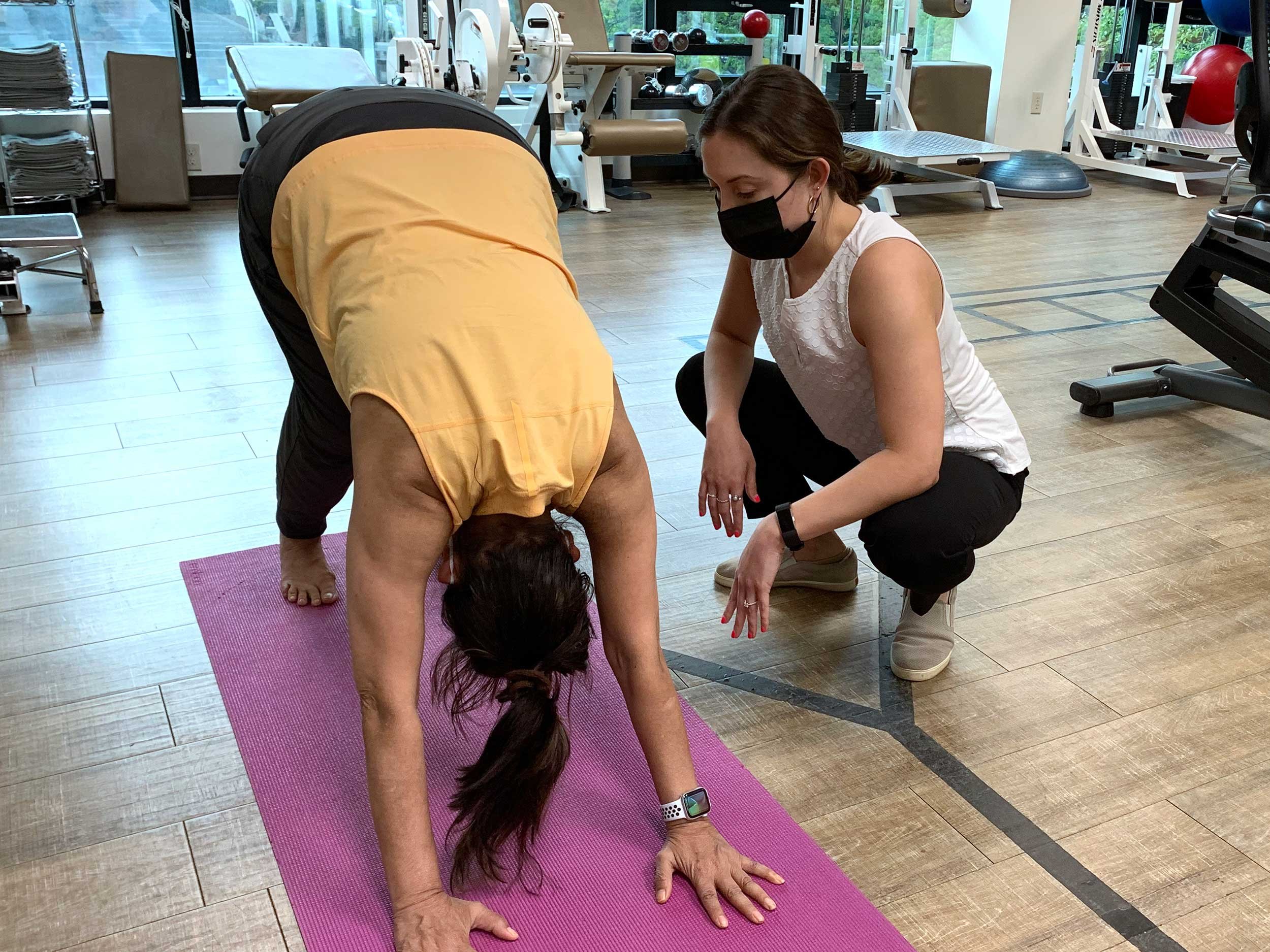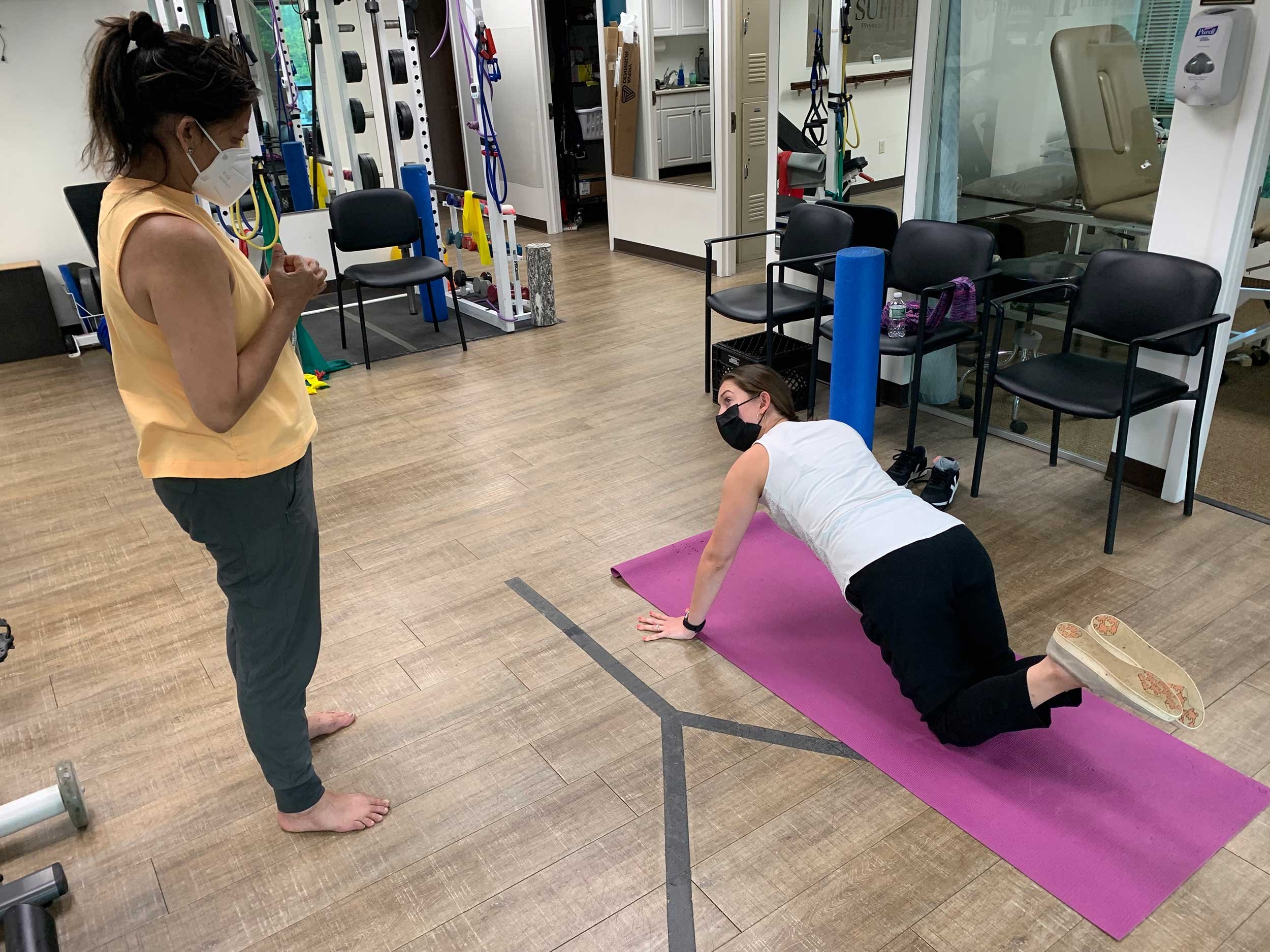Is Yoga Right for Me? Can Yoga Help Me Feel Better?
Chances are you have an opinion of what yoga is, whether you have participated in it or not. Maybe you went to a yoga class and it was a little too “hippy dippy” for you or it is something that you have always planned to try.
The most frequent misconception about yoga is that you need to be flexible or religious to participate. Despite its eastern origins, western culture has embraced the practice of yoga for decades. Depending on the studio or teacher, yoga can provide a variety of experiences. Emphasis can be placed on the physical, mental, or spiritual to suit the practitioner’s needs. This allows yoga to easily adapt to the individual’s goals and wants for an overall positive experience.
“The most frequent misconception about yoga is that you need to be flexible or religious to practice yoga.”
Despite what many believe, yoga is not just about achieving specific poses.
Yoga is really about exploring your body in its current state and improving movement awareness. Someone who may be less flexible may need more focus on relaxing muscles and improving mobility as compared with someone who is already limber who may require more strength and stabilization work. Certain yoga poses are used to target specific areas, for example pigeon pose or crescent lunge are considered hip openers because they target mobility of the hip. A more challenging hip opener is tree pose which is standing and requires more balance. Improving awareness of the body as well as increasing your physical activity can be part of a healthy routine in order to optimize function and even reduce pain.
“Yoga is really about exploring your body in its current state and improving movement awareness.”
A common myth is that a lot of stretching will improve your mobility.
While there are definitive benefits to stretching, not everyone will see improvements in “flexibility” with more stretching. If your hip range of motion is actually limited by your bones and joints, no amount of stretching will increase that range of motion and it may actually lead to injury. More often than not, flexibility is limited by muscles that are not good at relaxing while they are stretched as opposed to them having a truly decreased length.
Yoga specifically can be beneficial because you are working in whatever range is comfortable and safe, but you are also combining mindfulness and deep breathing which are relaxation techniques that can make rather rapid changes in your mobility. The combination of these relaxation techniques with practice of using your newly gained flexibility is why yoga is largely effective. Through yoga practice, you can learn how to detect and address muscles that have this increased tone regardless of if you are on your yoga mat or not.
Like with many other types of exercise, there can be increased risk of injury if yoga is performed incorrectly.
Having someone who has a deep understanding of the body and yoga is important to reduce injury risk. While yoga could easily be called a series of stretches and core work, it is important to understand that this needs to be prescribed correctly. Through your yoga practice, you will learn to self-assess and modify in order to reduce your risk of injury while practicing yoga as well as other activities you participate in. If you have an injury history, or are currently in pain and would like to start yoga, it may be beneficial to seek out a physical therapist who specializes in incorporating yoga. This special knowledge base will ensure that your yoga practice begins with your deficits in mind to make sure that your movements are not overdone and you are set up for success.
Yoga practice incorporates awareness of alignment, breathing, and mindfulness while building strength and improving mobility.
Yoga specifically allows for differences in anatomy and activity levels, inclusive to anyone. Practices range from energizing to relaxing and anywhere in between. A great teacher will give you the tools to use yoga in these different situations.
Although yoga can lead to benefits, regular practice (once a week to daily) will allow you to notice changes in your body and even your mental health. As will all exercise, consistency will lead to more benefits.
One of my favorite things about yoga is that the more you practice, the more rewarding it is!
Each time you arrive on your mat, there is an opportunity to notice differences in yourself during that moment. The goal is not to achieve a specific pose but to practice the skills you are developing. For many of us, simple awareness of our posture and position on top of breathing may be enough to build new skills. Even the most experienced yogis can continue to learn from the “simple” poses. They bring new awareness to a position, body part, or mental state of that day. Through regular practice, especially with the supervision of a licensed physical therapist, you may find an improved ability to participate in more challenging postures. It can be a lovely way to monitor how your skills are improving! With practice, you can even learn how to translate the skills you practice into your daily life. For example, chair pose builds quad strength as well postural awareness that can improve your ability to get in and out of sitting in a chair. Another example is warrior 3 which reinforces the motor pattern required to safely pick something up off the floor.
Summit Physical Therapy offers Yoga-based Therapeutic Exercise
At Summit Physical Therapy, our clinicians specialize in helping you feel better and provide you with the best therapeutic care to diagnose and treat muscular, nerve-related, and joint-related pain. In addition, we work to improve your current function so that you can reach your fitness goals.
Under the supervision of a skilled physical therapist, yoga-based exercise can be included in physical therapy treatment to improve flexibility, strength, and balance. It can be a highly effective part in improving spine pain, hip pain, ankle pain, and shoulder pain. Want to get started? Request an appointment now or call our office to schedule your visit.




